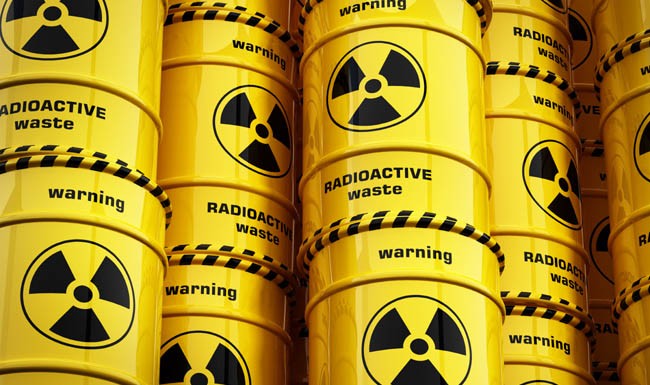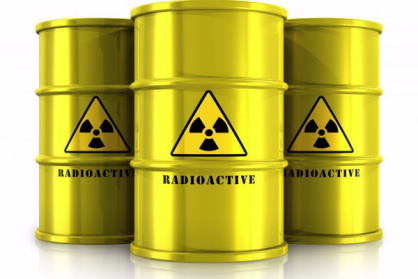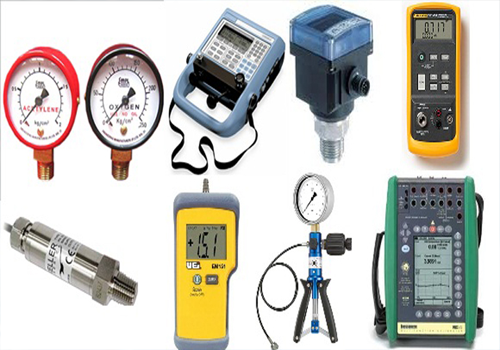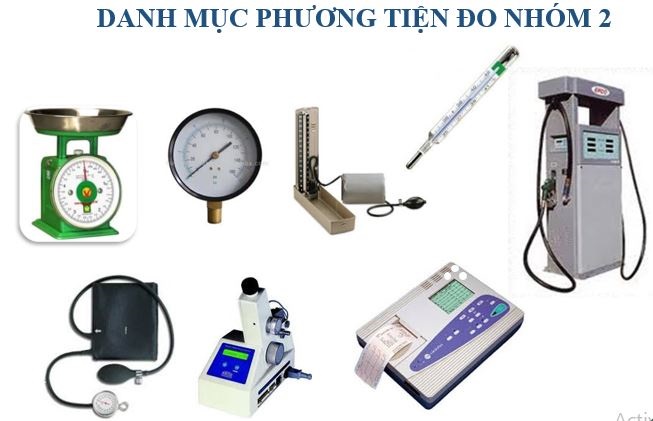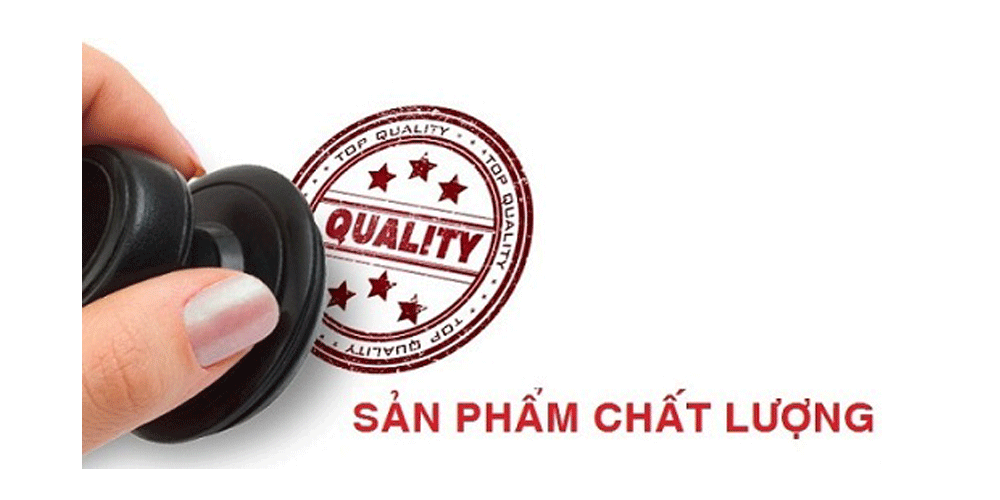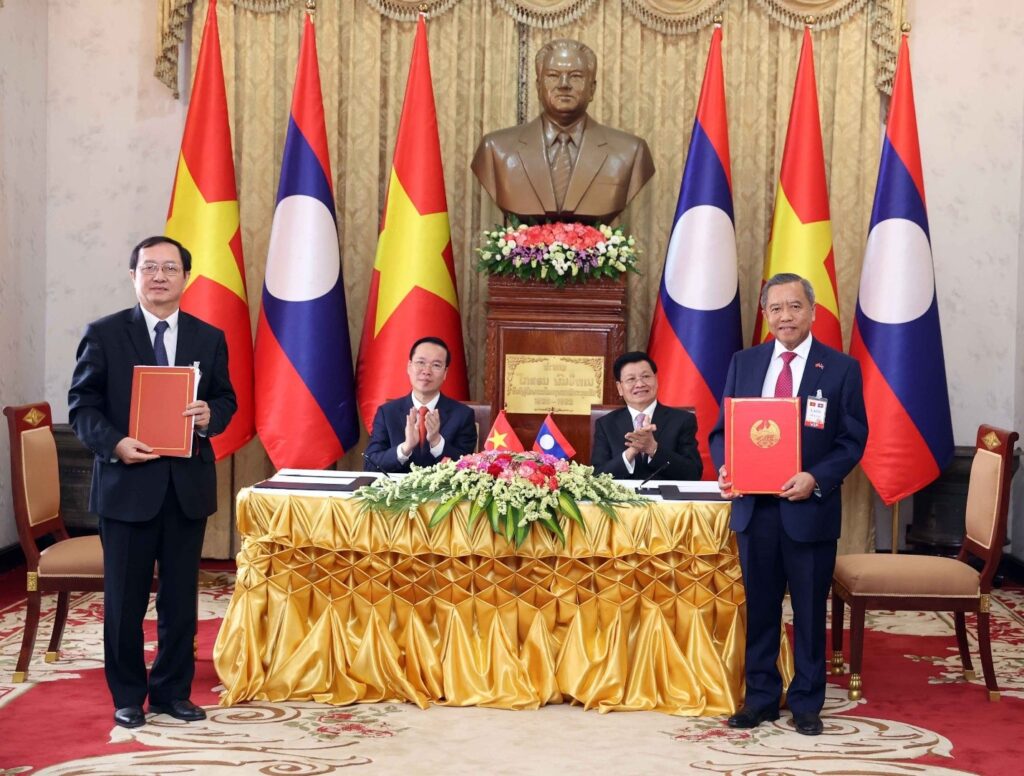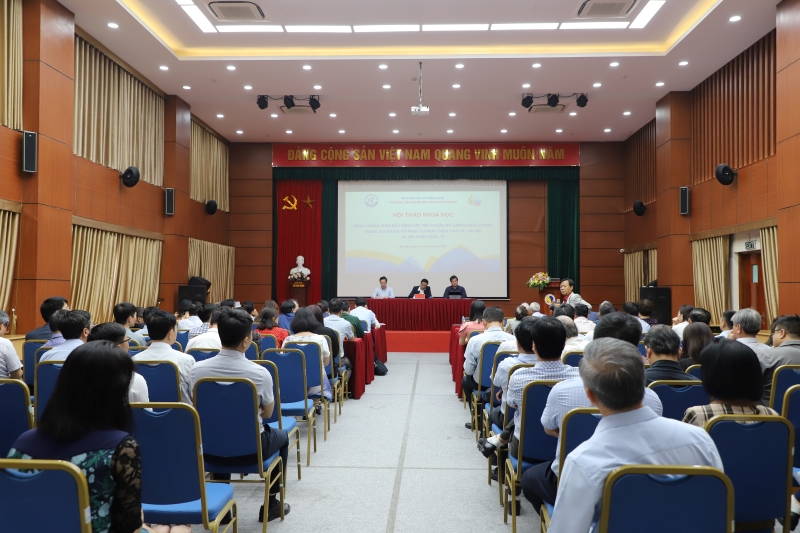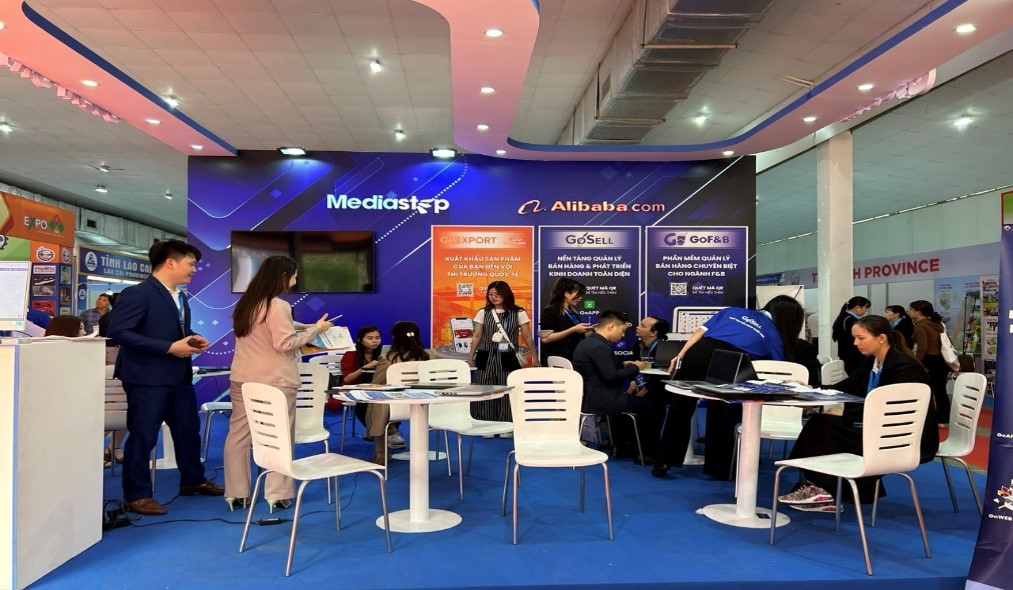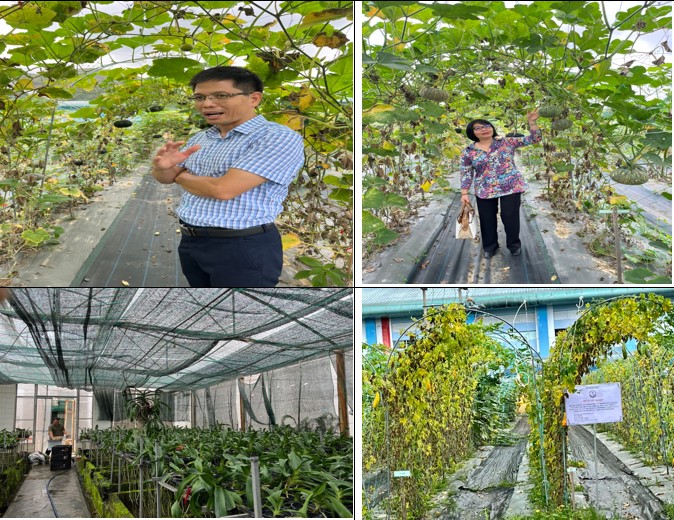The meeting aims to improve the effectiveness of the technical cooperation (TC) program between the IAEA and member countries as well as the entire region during the implementation period of new projects in 2024-2025.
Attending the meeting on the IAEA side were Mr. Hua Liu, Deputy Director General and Director of the Technical Cooperation Department; Ms. Jane Gerardo-Abaya, Director of the Asia-Pacific region and managers and experts of this region. The meeting was attended by more than 90 delegates from 36 countries in person and online. Attending the workshop, on the Vietnamese delegation's side, were also Mr. Tran Chi Thanh, Director of the Vietnam Atomic Energy Institute, National Coordinator of the RCA Agreement and Ms. Le Minh Hang, Assistant Coordinator.
Speaking at the opening ceremony, Deputy General Director Hua Liu emphasized that through the Covid-19 pandemic and facing the challenges posed, countries in the Asia-Pacific region have shown a change in mindset. thinking, going beyond traditional ways of working. Countries now have more experience and creativity to implement TC programs thoroughly and effectively.
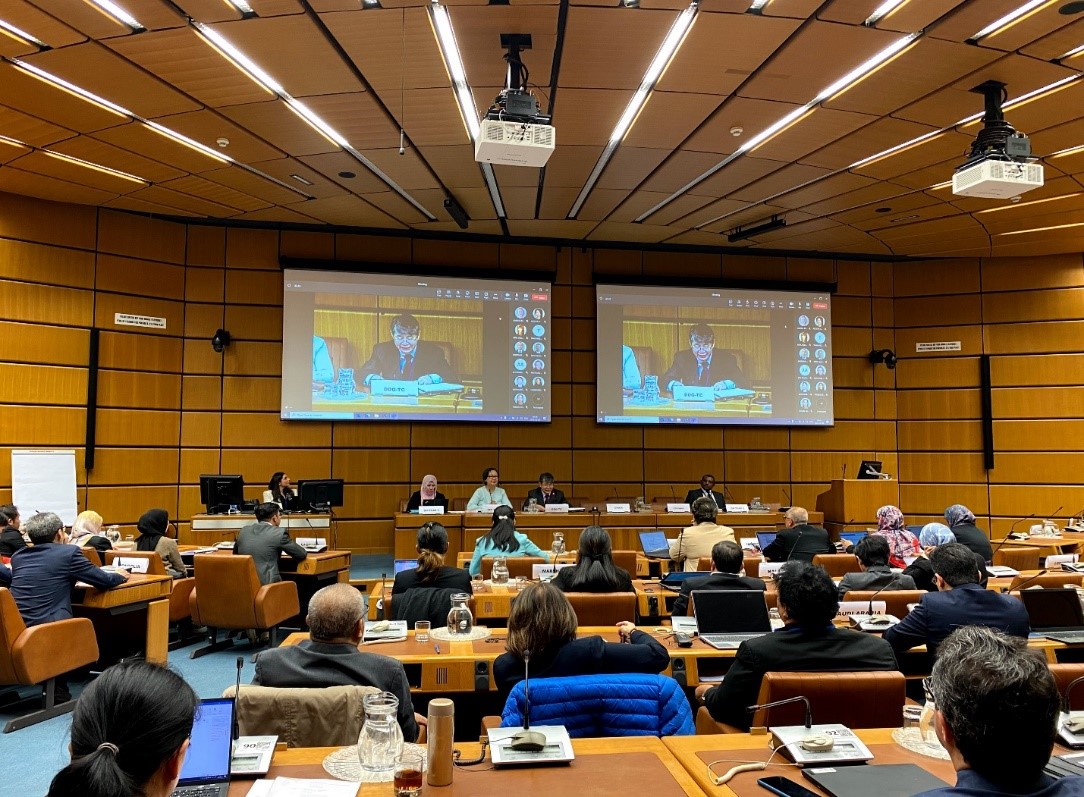
IAEA Deputy Director General Hua Liu delivered the opening speech at the Meeting.
He emphasized that the IAEA's TC program is a way for the organization to transfer nuclear technology to support member states in building and strengthening the capacity to apply nuclear technology for peaceful purposes, promoting sustainable development in the region. Asia - Pacific is a dynamic development region, national governments are making efforts to implement sustainable development goals and the technical cooperation program is the IAEA's effort to contribute to supporting these countries. country to achieve this goal. He appreciated the positive contributions of the National Coordinators and Assistant National Coordinators in supporting the IAEA in planning, implementing, monitoring and reporting the results of the TC program. In 2022, through the TC program in the Asia-Pacific region, the IAEA provided support to 39 countries and territories, including 7 least developed countries and 7 small island developing states. The program implementation rate reached 86.4% focusing on the fields of agriculture, health, radiation and nuclear safety, water resources and environment.
He also recalled the IAEA's current strategic initiatives, including the Integrated Action Project to Combat Zoonotic Diseases (ZODIAC) Initiative, and the application of nuclear techniques to treat ocean plastic waste ( NUTEC Plastic), Rays of Hope and hope that countries in the region will actively respond and participate in these Initiatives.
He emphasized that close cooperation is the key to success in implementing the TC Program, and hoped that countries would contribute new and creative ideas, consolidate and strengthen partnerships, and encourage forms of trilateral and multilateral cooperation to further promote the application of nuclear technology for peaceful purposes.
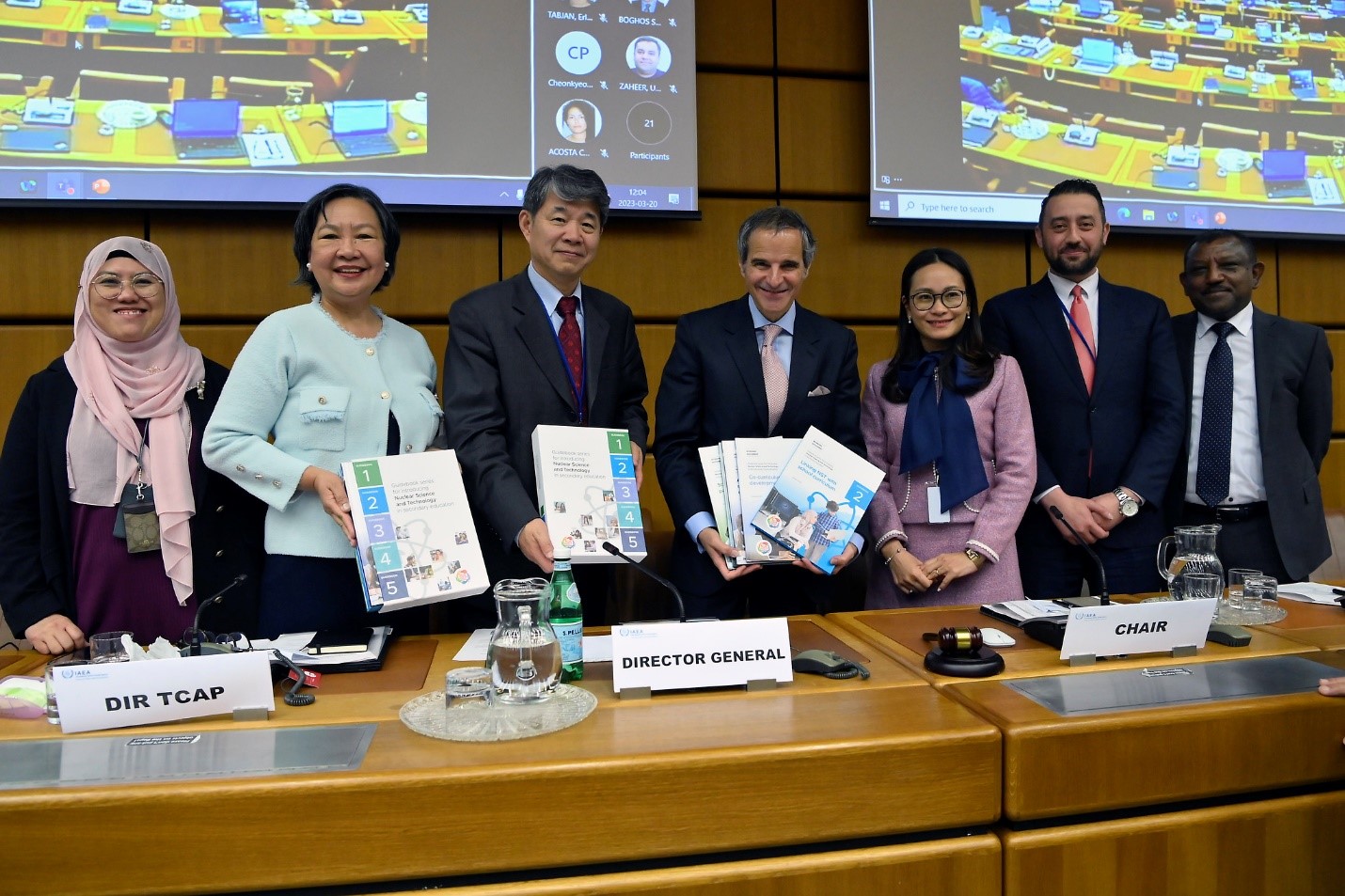
IAEA Director General Rafael Mariano Grossi welcomed and introduced a series of books that bring nuclear science and technology into teaching at the secondary level
The meeting also received the presence and welcome of IAEA Director General Rafael Mariano Grossi. Here, he introduced a series of books that bring nuclear science and technology into teaching at the secondary level. He said that to maintain the sustainability of nuclear science and technology applications, it is necessary to pay attention to fostering and raising awareness of the young generation about the important role of nuclear applications in everyday life. through research activities at the high school level. The publication provides guidance for Member States to consider in developing educational programs for students and teachers, encouraging secondary school students to participate in research and future careers in the nuclear field. hybrid.
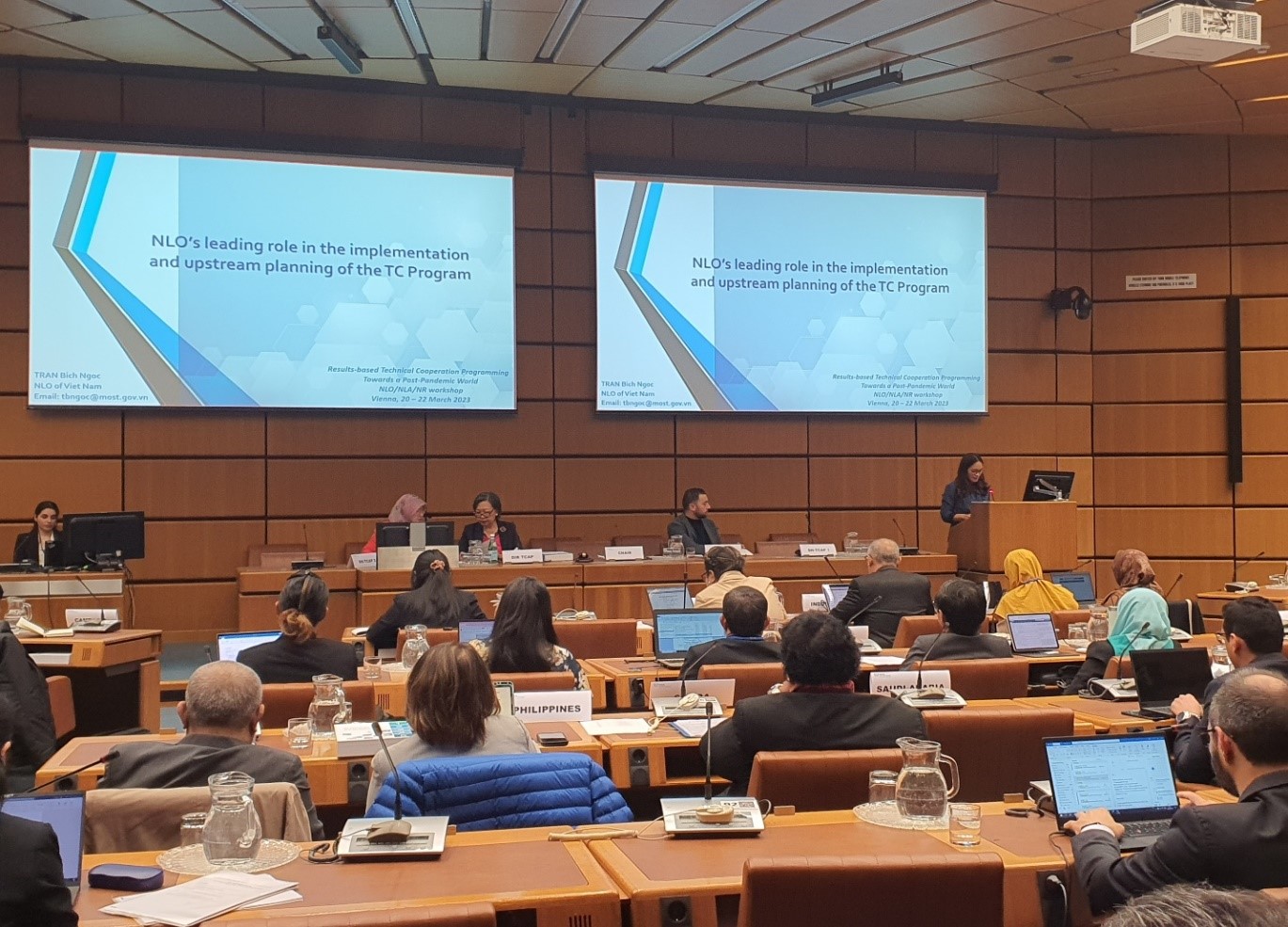
Deputy Director in charge of the Department of Atomic Energy presented at the Meeting.
At the Meeting, Ms. Tran Bich Ngoc was invited to present the important role of the National Coordinator in planning and implementing the TC program. Vietnam's national coordinator also shared difficulties and challenges in the process of implementing TC projects, including changes in national policies, domestic project approval procedures, and slow implementation of TC projects. annual contributions as well as difficulties in effectively combining national projects with regional/regional projects.
After 3 days of positive and effective work, the meeting made many important assessments. Ms. Tran Bich Ngoc, chair of the meeting, highlighted issues of mutual concern to all parties, affirming that maintaining connection and exchanging information is an effective method to manage the TC program, emphasizing the necessity promote dialogue with national policymakers and establish monitoring/management channels between member countries and the IAEA Technical Cooperation Department.
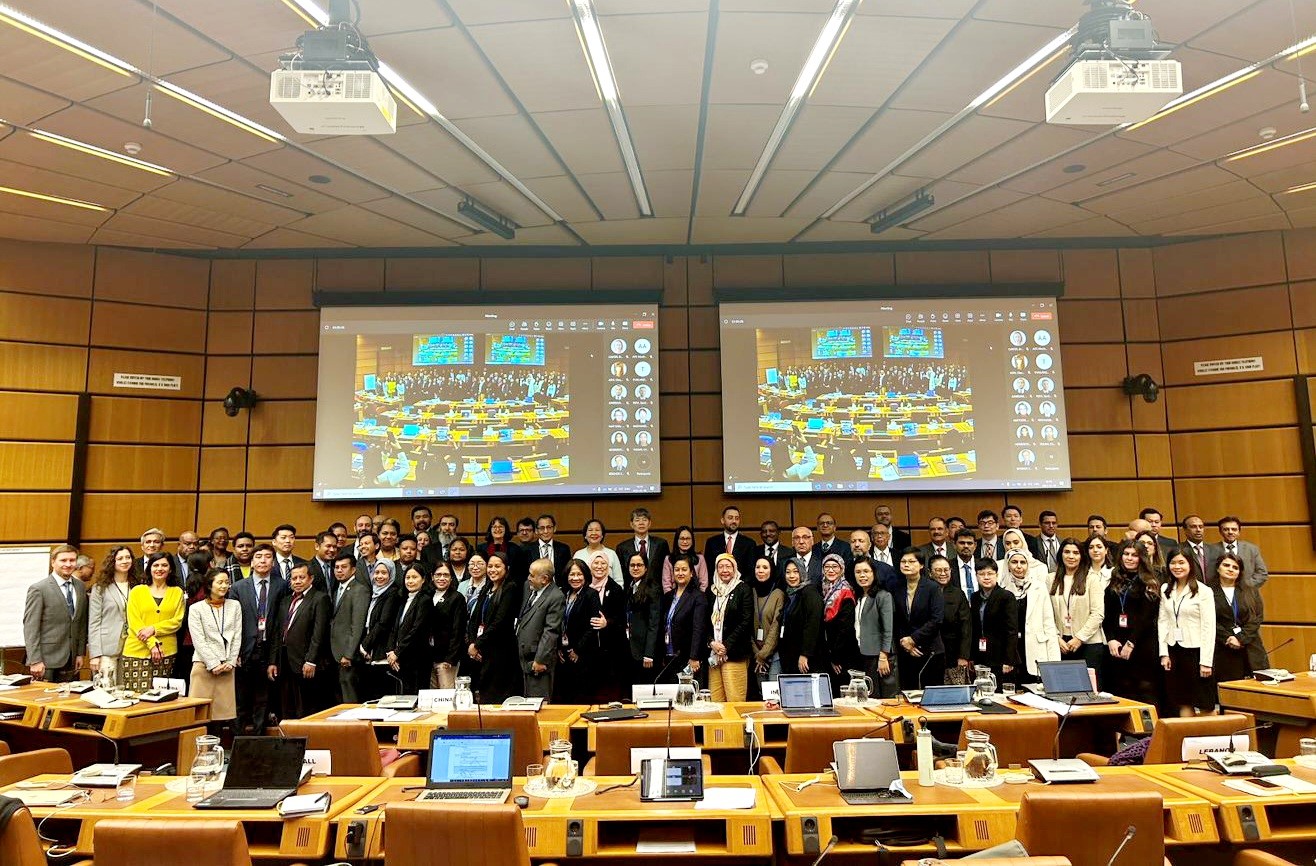
Delegates attending the Meeting.
For the National Coordinator/Assistant Coordinator, it is necessary to train and improve the capacity to use management tools and develop a knowledge management plan so that future TC projects can be implemented regularly. transparent and effective. In addition, in the process of planning and implementing the TC project, the IAEA and countries need to clearly identify national priorities and orientations, and be flexible in the project implementation process to suit changing needs. change in national policy. The IAEA also encourages member states to create favorable conditions for the young generation to study and work in the field of nuclear science and technology, and to soon include content on nuclear science and technology in the curriculum. ./.
Source: Department of Atomic Energy

